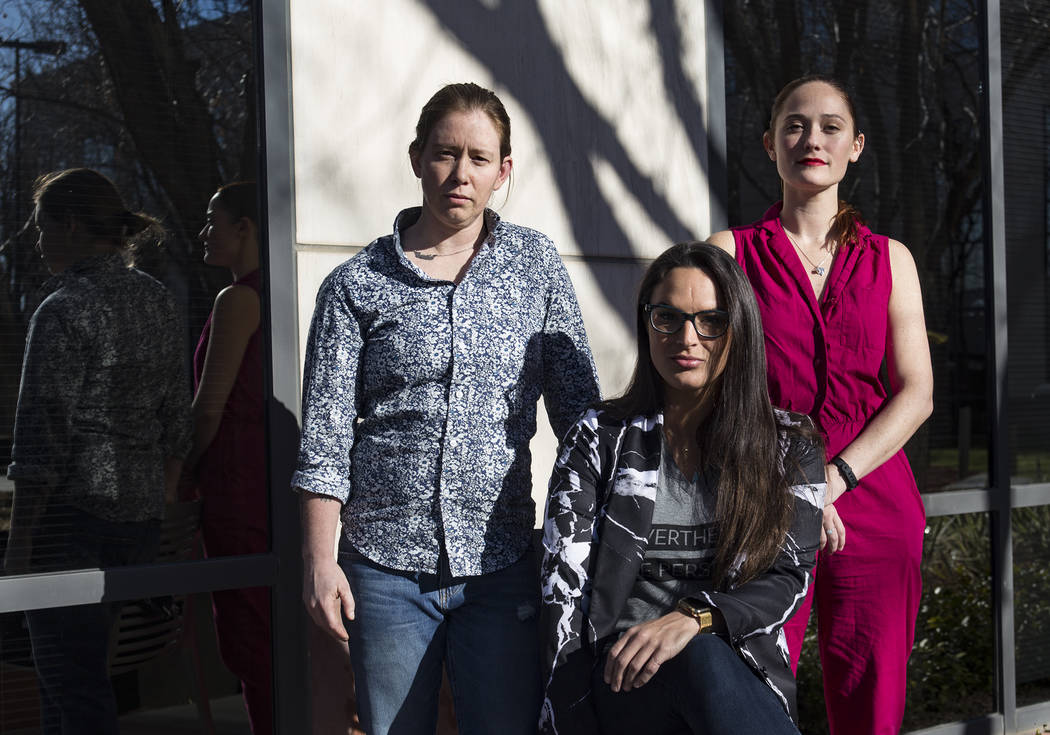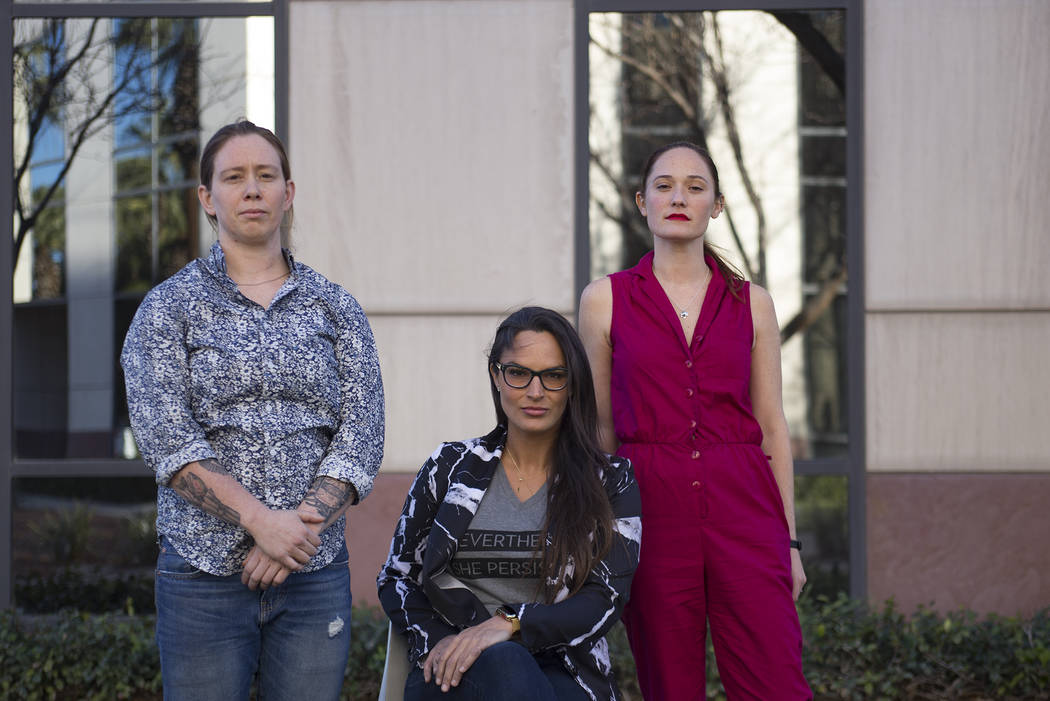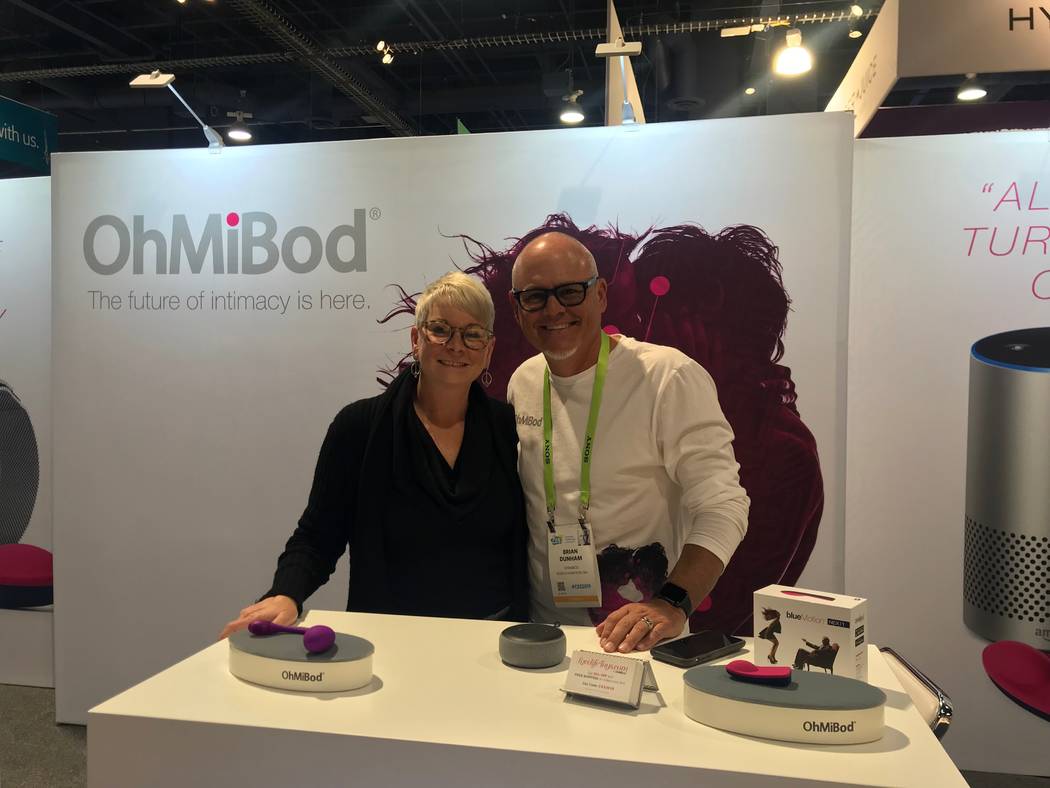CES 2019: Sex tech company’s owner says show reflects tech industry gender bias
Lora Haddock expected to unveil a prototype of her company’s award-winning, vibrator-like device at CES this week.
But almost as quickly as the Consumer Technology Association presented Haddock’s company, Lora DiCarlo, with a CES Innovation Award, it revoked the honor and the company’s space on the show floor.
Haddock said CTA’s decision presents “an attack on any product that is geared toward’s women’s sexual health, pleasure and empowerment.”
“I think their decision is completely arbitrary and capricious,” Haddock said, sitting in a shared working space off the Strip Wednesday.
The Osé personal massager, which uses micro-robotic technology, would’ve joined other sex tech companies at the show, including OhMiBod, which produces vibrators and other sex toys, and Naughty America, which sits in a meeting room next to show booths with VR sets that demo their porn products the company says are for entertainment purposes.
Haddock was notified about two months ago that her Oregon-based company would lose its award and the product would be banned from the floor, she said. A CTA spokeswoman said in an emailed statement Wednesday the device didn’t fit into any existing product categories.
According to Haddock, CTA told the company any products deemed “immoral, obscene, indecent, profane or not in keeping with CTA’s image will be disqualified.”
Haddock said the incident is an example of sexism and gender bias in an industry that has, in recent years, been criticized for favoring male-led companies.
“This is just a symptom of a very, very big problem in the tech world,” Haddock said. Though CTA revoked its award, the company won the IHS Markit Innovation Award in the robotics and drones category, presented at the ShowStoppers media event Tuesday.
The company’s experience contrasts starkly with the way CTA has treated sex toy company OhMiBod. Based in New Hampshire, the company has a variety of vibrators on display. They launched more than a decade ago and first appeared at CES in 2011 with a vibrator that synced to music on an iPod.
They’ve been at the show ever since, and have received nothing but support from CTA, said co-founder Suki Dunham.
“CTA was a little unsure about having us here, but we sent them a lot of information, made our case, showed what our booth was going to be like … and they nodded their head and supported us,” she said.
Lynn Comella, an associate professor of gender and sexuality studies at UNLV, said she doesn’t know details of the interactions between the company and show organizers. But, she said, rescinding the award may suggest not just gender bias, but a lack of awareness by show organizers about what’s happening in the world of sex tech.
“There’s nothing unusual about the marriage of pleasure devices and tech. That’s been the trend, particularly over the last 10 or 15 years,” said Comella, who authored “Vibrator Nation: How Feminist Sex-Toy Stores Changed the Business of Pleasure.”
She added that the trend has largely been led by women.
“(The incident) really suggests that CES is completely out of touch with the growing field of sex tech,” Comella said.
But the industry has come a long way since OhMiBod entered the scene, said Dunham.
“Why shouldn’t we be here?” she asked. “For us, it’s about normalizing these products.”
Staff writer John Przybys contributed to this report.
Contact Jessie Bekker at jbekker@reviewjournal.com or 702-380-4563. Follow @jessiebekks on Twitter. Review-Journal staff writer John Przybys contributed to this report.































